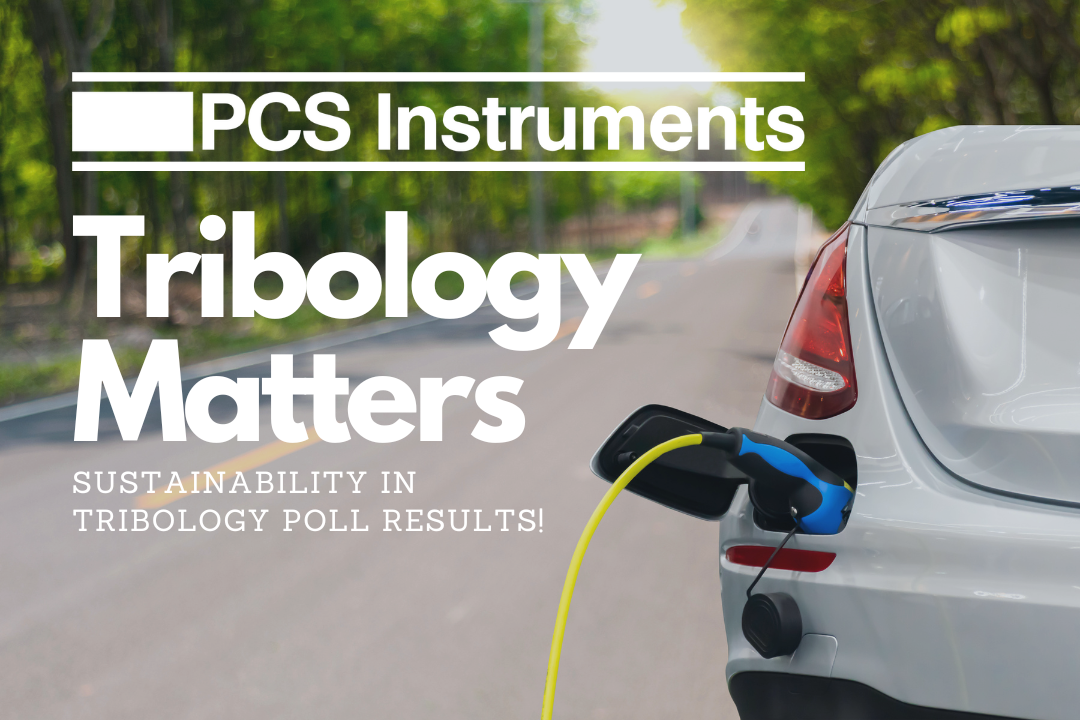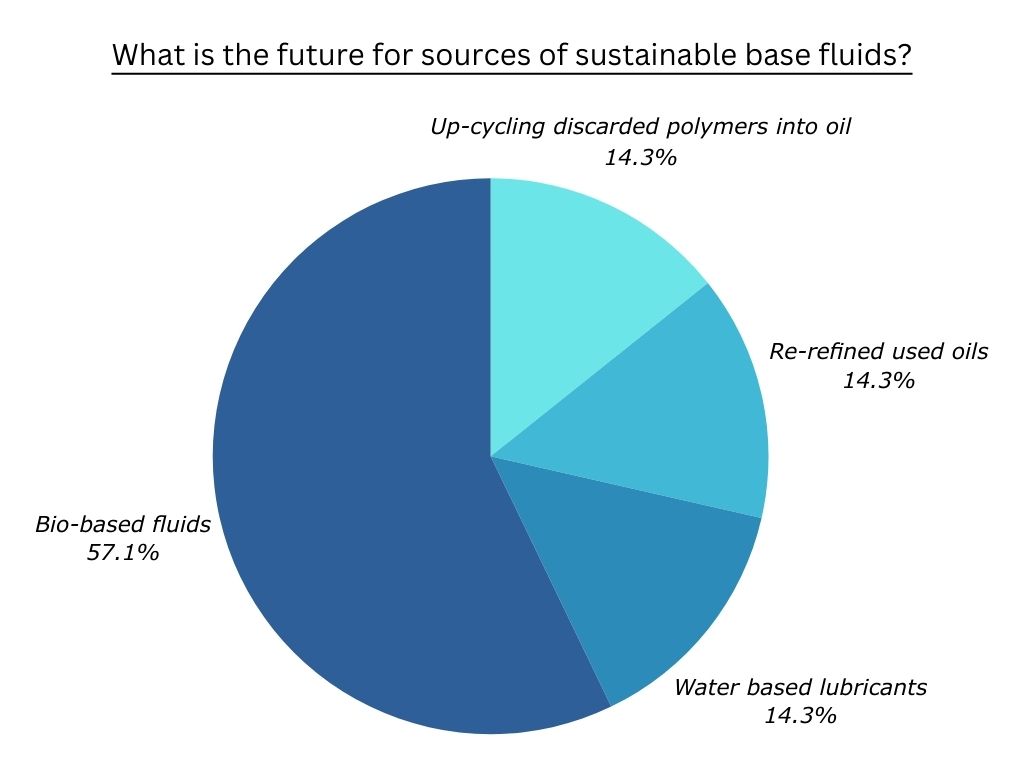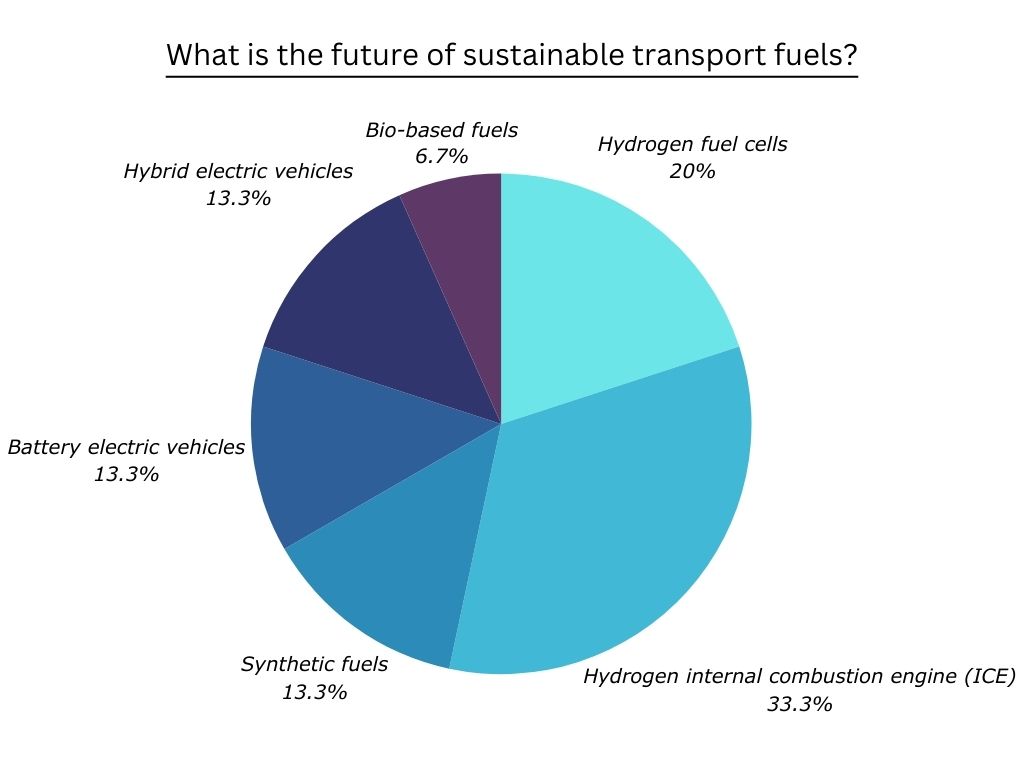Tribology Matters: Sustainability in Tribology Poll Results!

In the early December 2023 issue of our “Tribology Matters” newsletter, we asked our readers two poll questions relating to sustainability in tribology:
- What is the future for sources of sustainable base fluids?
- What is the future of sustainable transport fuels?
Sustainability is an ongoing and ever growing topic of conversation in the tribology community. The choices of materials and lubricants used every day worldwide can greatly affect the environment due to their chemical makeup. Sustainability in tribology focuses on picking eco-friendly materials, lubricants, and coatings that cut down on harmful emissions, decrease waste, and can even take into account the carbon footprint of developing said lubricants – all while still prolonging the lifespan of components.
We found the answers to both questions fascinating, as only the sustainable base fluid question had an answer with over 50% of the votes! Lets take a deeper look at the results, looking at the base fluid question first.
For this first question – what is the future for sources of sustainable base fluids? – we gave four possible answers:
> Up-cycling discarded polymers into oil
> Re-refined used oils
> Bio-based fluids
> Water based lubricants
And here are the results!

Bio-based lubricants are the clear winner here, with 57.1% of votes, with only 14.3% of votes each for the other three answers. According to this article in STLE, bio-based lubricants boast “biodegradability, superior lubricity, higher flash/fire points, high VI, basestock renewability and domestic agricultural support.”
For lubricants to be considered bio-based, they don’t necessarily have to be entirely made from unaltered vegetable oil. Instead, it’s only essential that the base materials used are renewable – this can include fatty acids and modified natural vegetable oils, both of which meet the criteria.
If a shift towards renewability is an ongoing theme in much of the rest of the world, it makes sense that greener solutions would also be at the forefront in tribology.
Where the first question had an overwhelming majority, the second question we asked our readers was much more hotly contested. The possible answers for “what is the future of sustainable transport fuels?” were:
> Hydrogen fuel cells
> Hydrogen internal combustion engine (ICE)
> Synthetic fuels
> Battery electric vehicles
> Hybrid electric vehicles
> Bio-based fuels
And the winner is……

Hydrogen internal combustion engines! This could be down to vehicle manufacturers and those managing large numbers of vehicles seeing the move to hydrogen-powered engines as a step that stays close to well-known parts and practices, meaning that there are less radical changes necessary to secure a greener future.
Fuel cell electric vehicles and hydrogen internal combustion engines also shouldn’t necessarily be seen as competitors, as their advancements are mutually beneficial – supporting a shared hydrogen fuel infrastructure and storage solutions!
If you’d like to sign up for our newsletter to keep up to date with the world of tribology, and take part in future polls, you’ll find a sign up link below this article!
To stay updated with the newest industry insights through our articles and news, click here!
